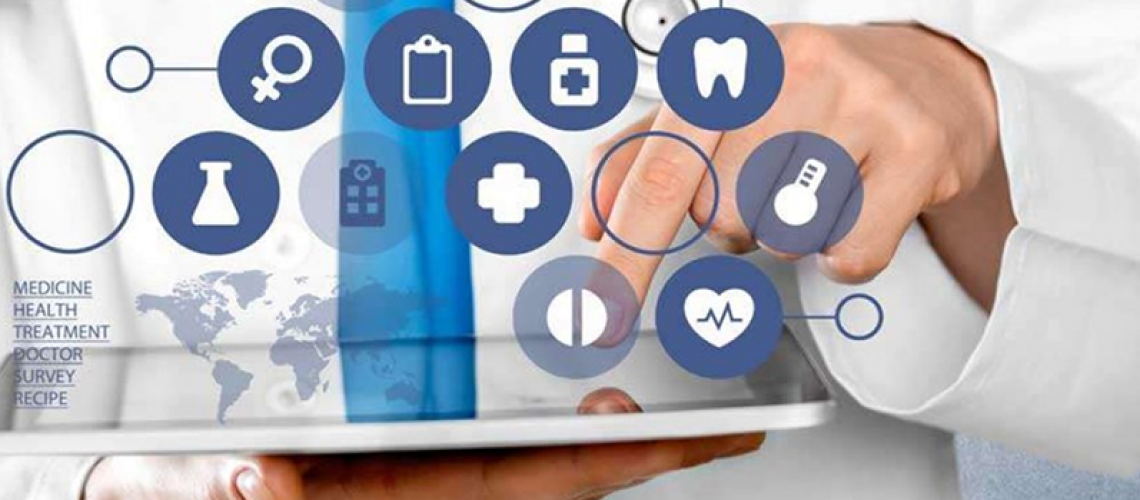Artificial Intelligence has been around for a long time. As an advanced stage in machine technology, the first roles of application of AI in the human sphere are in process automation, cognitive insight, cognitive engagement, and machine learning. The process of simulating human intelligence in machines (Artificial Intelligence) has proven extremely useful in solving technical problems designed and fit for the human mind. From the simplest to the complex of tasks, simulating learning, reasoning, and perception in a machine has literally helped the human race to surpass many boundaries.
Artificial Intelligence and Modern Medicine
Currently, the use of Artificial Intelligence is no longer restricted to the lab. Its application in medicine has long been theorized and advocated within clinical research. Recently, the introduction of Artificial Intelligence has been directly into the doctor-patient relationship allowing
online doctors such as WebDoctors to perform basic repetitive healthcare tasks. From compiling patient’s data to randomly displacing health information in a waiting room, AI has displayed unrivaled prospects in many aspects of virtual healthcare delivery. In a swift bid to properly integrate Artificial Intelligence with modern medicine, many kinds of research have been conducted to assess the safety of process automation in medical care.
The last World Health Organization global eHealth observatory survey officially recognized four
AI-aided telehealth services telepathology, teleradiology, teledermatology, and telepsychiatry. This is coming at a time the many health regulatory agencies are creating space for the introduction of Artificial Intelligence into patient management. In February 2020, the FDA granted a De Novo clearance authorizing the marketing of an AI-aided cardiac ultrasound software. Developed by Caption Health, this guidance tool helps medical professionals to produce high-quality ultrasound images in a diagnostic test.
Today, there are many licensed software exploring the advancement of Artificial Intelligence to help improve medical care. Wearable devices can now effectively measure and record patients’ vital signs at the comfort of their homes. Many smartphone software has also been developed to help manage personal health record, conduct on-demand minor cases diagnosis, and recommend dietary options as befitting for a patient’s medical condition.
Artificial Intelligence in Telemedicine
Online doctor services drive the digitization of healthcare by providing remote patient care. Telemedicine as a rapidly emerging healthcare delivery method saves time, unburdens the medical practitioner, and saves the patient the stress of driving long distances to access medical care. By integrating digital technology with medicine, online doctor services can now conduct virtual consultation sessions, order a diagnostic test, issue an online prescription, and adopting a therapy monitoring plan.
Introducing Artificial Intelligence into modern medicine will no doubt expand the frontiers of telemedicine. In the past couple of years, there has been an exponential increase in the number of health data generated by individual patients, healthcare providers, and medical institutions. These data can be personal records, clinical reviews, or innovations in medical practices. The real-time integration of all these data into modern medicine to advance healthcare has been projected to benefit immensely from Artificial Intelligence.
The Roles of “AI” in Advancing Telemedicine
1 – Tele-diagnosis of Medical Conditions
Clinical diagnosis is rapidly shifting away from clinical-examination-based processes to accommodate evidence-based processes that bank on the doctor’s objective interpretation of the presenting symptoms. This single shift is supported by advances in Artificial Intelligence (process automation) and telemedicine (digital technology). Artificial Intelligence can remotely generate and storing diagnostic images and vital signs from different patients suffering from a medical condition and create unique cloud storage of data. This storage can be compared with data from a new patient to accurate conduct a remote diagnosis.
In 2017,
Nature published a research report on the dermatologist-level classification of skin cancer with deep neural networks. This research is aimed at using AI in performing automated classification of skin lesions using diagnostic images and machine learning. The result from this research suggests that the AI systems developed for this task achieved performance on par and demonstrates an artificial intelligence capable of classifying skin cancer with a dermatologist’s level of competence.
2 – Remote Patient Monitoring
Patient monitoring is a continuous process in medical care. Primarily, it is important in tracking disease progression, assessing response to therapy, and ascertaining the need for therapy modification.
Online doctor services have explored telemedicine for years in remote patient monitoring plans using advanced audio-visual technology. Artificial Intelligence is an efficient tool in lifting the current standards of telemedicine in remote patient monitoring. The early application of Artificial Intelligence in remote patient monitoring is in the designs of Telepresence Robots –a remote-controlled robot-aided monitoring system gathering real-time data on patient response to therapy.
Artificial Intelligence has also enabled the design of smartphone software and wearable devices that transmit patients’ clinical data directly to a medical practitioner through a simple Wi-Fi connection. There is research into an AI-aided monitoring system that can accurately predict the need for therapy modification based on data comparisons. This system will, no doubt, improve adherence, continuously monitor clinical status, and improve the outcome of therapy.
3 – Eldercare Programs
According to the United Nations’ data on World Population Ageing, the global population aged 65 years and above is growing faster than other age groups. In 2018, this population outnumbered children under five years of age globally. By 2050, the population of people aged 80 years is projected to reach 426 million people globally. This data suggest that a more effective healthcare method will be needed in the nearest future to cater to the world’s rapidly aging population. The integration of Artificial Intelligence into telemedicine and online doctor services provides the most viable option to provide remote healthcare for this population.
4 – Health Information Management
Automating the processes involved in clinical data gathering, medicine management, and analyzing medical records is possible with Artificial Intelligence. A vital part of remote healthcare delivery (Telemedicine) rests heavily on accurate health information management. Beyond merely compiling clinical data in cloud storage, Artificial Intelligence helps the medical team determine the incidence of disease in a region, alert a medical institution to an emerging novel disease or help clinicians compare the outcome of medical procedures.
In medicine management, an automated software prompt can reliably remind the patient of drug dosage per time and improve medication adherence. The benefits of Artificial Intelligence in Health Information Management is truly limitless. Although the integration of Artificial Intelligence with telemedicine is in the early stages, the stage is definitely set for advancement in the global healthcare indices once fully achieved.












